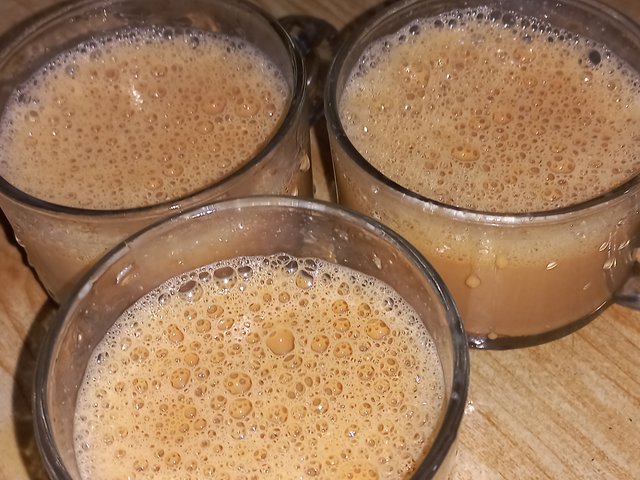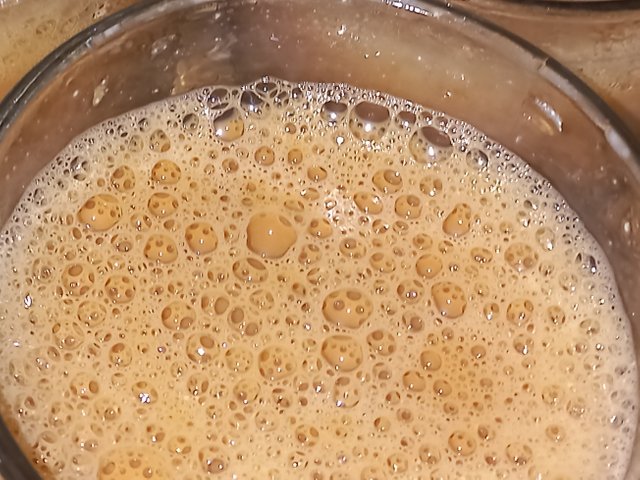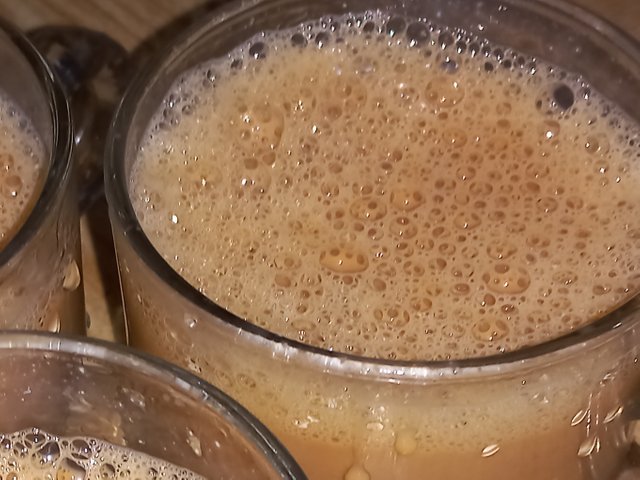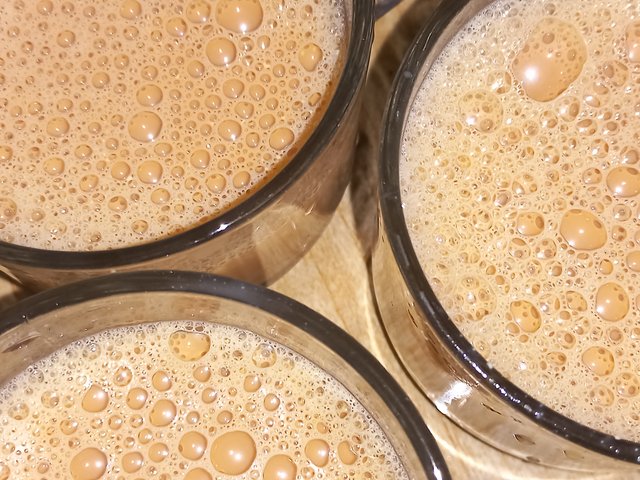Milk tea...
Hello friends How are you all?How are your families members? I Hope your familiar and you all of staying with happyly safely and storng by the grace of God.I am too much great by the grace of My God.
Title: Exploring the Pros and Cons of Milk Tea: A Comprehensive Guide

Introduction:
Milk tea, a beloved beverage enjoyed by millions around the world, has gained immense popularity in recent years. Combining the richness of tea with the creaminess of milk, this versatile drink comes in a variety of flavors and styles, satisfying both traditionalists and adventurous palates alike. In this blog post, we will delve into the advantages and disadvantages of milk tea, examining its impact on health, culture, and lifestyle.
Advantages of Milk Tea:
Rich Flavor Profile: One of the most significant advantages of milk tea is its rich and diverse flavor profile. Whether you prefer classic black tea with a splash of milk or exotic fruit-infused blends, there is a milk tea variety to suit every taste preference. The addition of milk adds a creamy texture and enhances the depth of flavor, making each sip a delightful experience for the senses.
Customization Options: Milk tea offers endless customization options, allowing consumers to tailor their beverages to their liking. From adjusting the sweetness level to choosing different tea bases and toppings such as tapioca pearls, jelly, or pudding, the possibilities are endless. This versatility ensures that milk tea remains a popular choice among consumers with varying preferences and dietary restrictions.

Caffeine Boost: For many people, milk tea serves as a convenient and delicious way to get their caffeine fix. Black and green teas, commonly used as the base for milk tea, contain caffeine, providing a natural energy boost to help kickstart the day or combat afternoon fatigue. Additionally, the combination of caffeine and milk can promote alertness and improve cognitive function, making milk tea a popular choice among students and professionals alike.
Cultural Significance: Milk tea holds significant cultural importance in various regions around the world, particularly in Asia. In countries such as Taiwan, Hong Kong, and Japan, milk tea is deeply ingrained in the culinary heritage and social fabric, serving as a symbol of hospitality, tradition, and community. Its popularity has transcended borders, leading to the proliferation of milk tea shops and cafes in cities worldwide, where locals and tourists alike can experience its cultural significance firsthand.

Digestive Benefits: Some studies suggest that consuming milk tea may offer digestive benefits due to the presence of tea polyphenols and probiotics found in fermented varieties. These compounds can promote gut health, aid in digestion, and reduce the risk of gastrointestinal issues such as bloating and indigestion. Additionally, the warmth of milk tea can have a soothing effect on the digestive system, making it an ideal beverage choice after a heavy meal or during periods of discomfort.
Disadvantages of Milk Tea:
High Sugar Content: One of the primary drawbacks of milk tea is its high sugar content, particularly in commercially prepared and pre-packaged varieties. Many milk tea beverages are loaded with added sugars, syrups, and sweetened condensed milk, contributing to excessive calorie intake and potentially leading to weight gain, obesity, and other health issues. Regular consumption of sugary drinks like milk tea has been linked to an increased risk of chronic conditions such as type 2 diabetes, heart disease, and metabolic syndrome.
Caloric Density: In addition to sugar, milk tea can be calorie-dense, especially when made with full-fat milk and indulgent toppings such as whipped cream or chocolate sauce. These extra calories can quickly add up, contributing to overall calorie intake and potentially sabotaging weight loss or weight management efforts. It's essential to be mindful of portion sizes and ingredients when enjoying milk tea to maintain a balanced diet and prevent excess calorie consumption.
Potential Allergens: Milk tea may pose a risk for individuals with lactose intolerance or dairy allergies, as it contains milk as a primary ingredient. Consuming milk tea can trigger adverse reactions such as bloating, gas, abdominal discomfort, diarrhea, or allergic reactions in susceptible individuals. Fortunately, many milk tea shops offer dairy-free alternatives such as almond milk, soy milk, or oat milk to accommodate customers with dietary restrictions or preferences.

Caffeine Sensitivity: While the caffeine content in milk tea can provide a welcome energy boost for some, it may pose a problem for individuals sensitive to caffeine or those with certain medical conditions such as anxiety disorders, hypertension, or insomnia. Excessive caffeine consumption can exacerbate these conditions, leading to jitteriness, palpitations, difficulty sleeping, or increased anxiety levels. It's essential to moderate caffeine intake and be mindful of personal tolerance levels when enjoying milk tea regularly.
Conclusion:
Milk tea offers a tantalizing blend of flavor, tradition, and convenience, making it a beloved beverage choice for millions of people worldwide. However, it's essential to consider both the advantages and disadvantages of milk tea to make informed decisions about consumption and ensure a balanced approach to dietary habits. By enjoying milk tea in moderation, opting for healthier preparation methods, and being mindful of ingredient choices, you can savor this delightful beverage while supporting overall health and well-being. So, the next time you indulge in a cup of milk tea, savor the moment and appreciate the cultural richness and sensory delight it brings to your day.